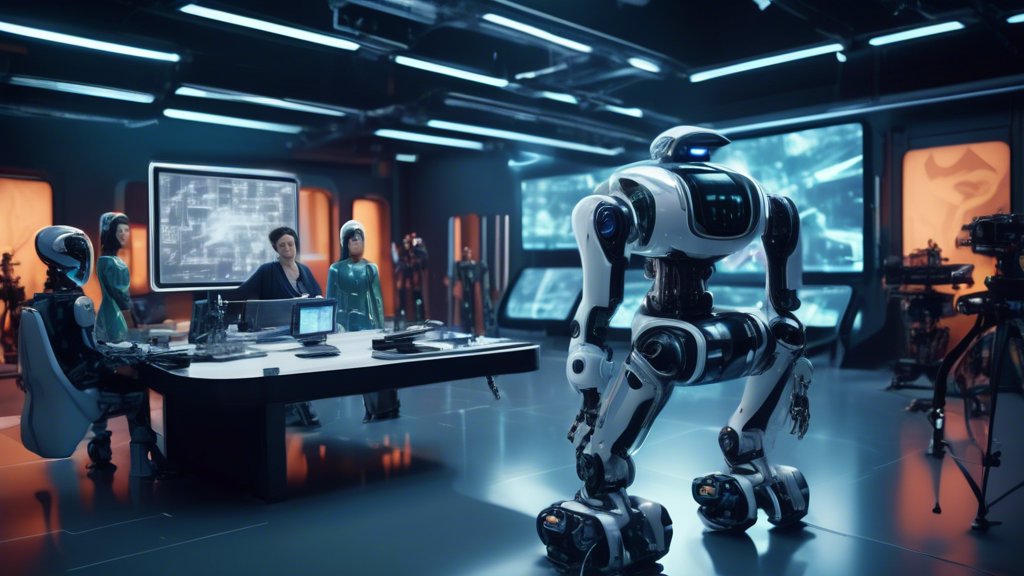An Industry on the Brink of Transformation
The film industry has always been a fertile ground for technological innovation. From the introduction of sound in movies to the groundbreaking special effects in Star Wars and Avatar, Hollywood has consistently evolved in response to new technological advancements. The latest frontier appears to be Artificial Intelligence (AI), which is subtly but significantly altering how movies are made, marketed, and even consumed.
AI in Scriptwriting and Story Development
Screenwriting has traditionally been a creative process driven by human imagination and experience. However, AI algorithms are now being used to assist writers by analyzing vast amounts of data to predict successful story elements. For instance, companies like ScriptBook use AI to predict box office performance based on script analysis. These AI systems can estimate potential financial success by evaluating genre trends, storytelling techniques, and character arcs, thereby guiding studios to invest in more promising projects.
An interesting development is AI’s ability to generate new story ideas. Tools like OpenAI’s GPT-3 can generate coherent and contextually relevant text that can serve as a starting point for screenwriters. While AI might not yet be ready to write an entire screenplay, it can provide valuable inspiration and help overcome writer’s block, making the scriptwriting process more efficient.
Pre-Production and Planning
Pre-production often involves complex logistics, from budgeting to scheduling, and AI is increasingly becoming a valuable asset in this phase. AI algorithms can optimize shooting schedules by taking into account various factors such as actor availability, location constraints, and weather conditions. This optimization can save both time and resources, allowing for a more streamlined production process.
Furthermore, AI-driven tools like StudioBinder and Celtx are being used for efficient project management. These platforms use AI to assist in tasks such as breaking down scripts, generating call sheets, and managing production schedules, making the pre-production phase much more manageable.
AI in Special Effects and Animation
The realm of special effects and animation has perhaps benefited the most from AI advancements. Machine learning algorithms are being used to create more realistic visual effects at a fraction of the time and cost. AI-driven software can analyze vast amounts of data to create highly detailed and lifelike animations, reducing the manual labor typically involved in these processes.
Companies like Weta Digital and Industrial Light & Magic are leveraging AI for tasks ranging from character animation to environment generation. Deep learning techniques enable these companies to produce high-quality visual effects more efficiently, freeing up artists to focus on more creative aspects of their work.
AI in Marketing and Distribution
AI’s influence extends beyond production to marketing and distribution as well. Traditional marketing strategies often rely on demographic data and past performance to target audiences. AI takes this a step further by analyzing social media trends, online behavior, and sentiment analysis to create highly targeted marketing campaigns.
Netflix, for example, uses AI algorithms to analyze viewing habits and predict what content will be most successful with its audience. This data-driven approach allows for more effective marketing strategies and helps ensure that the right audiences are targeted with the right content.
AI is also being used to optimize release strategies. By analyzing factors such as competition, seasonal trends, and audience preferences, AI can help studios decide the best time to release a film to maximize its chances of success.
Challenges and Ethical Considerations
Despite its many advantages, the use of AI in Hollywood is not without challenges and ethical considerations. One of the main concerns is the potential loss of jobs, particularly in roles that AI can automate, such as script analysis and special effects generation. There is also the question of creative control, as reliance on AI could potentially stifle human creativity and result in formulaic content.
Moreover, issues of data privacy and algorithmic bias cannot be overlooked. AI systems are only as good as the data they are trained on, and biased or unrepresentative data can lead to problematic outcomes. Ensuring the ethical use of AI in the film industry will require careful oversight and regulation.
The Future of AI in Hollywood
AI’s adoption in Hollywood is still in its early stages, but its impact is already being felt. As technology continues to advance, AI’s role in the film industry is likely to grow, offering new opportunities for creativity and efficiency. While challenges and ethical considerations remain, the potential benefits of AI in streamlining production, enhancing special effects, and optimizing marketing strategies make it a promising tool for the future of filmmaking.
Discover Royalty Free Music for Content Creators – Pro Sync Licensing Available


